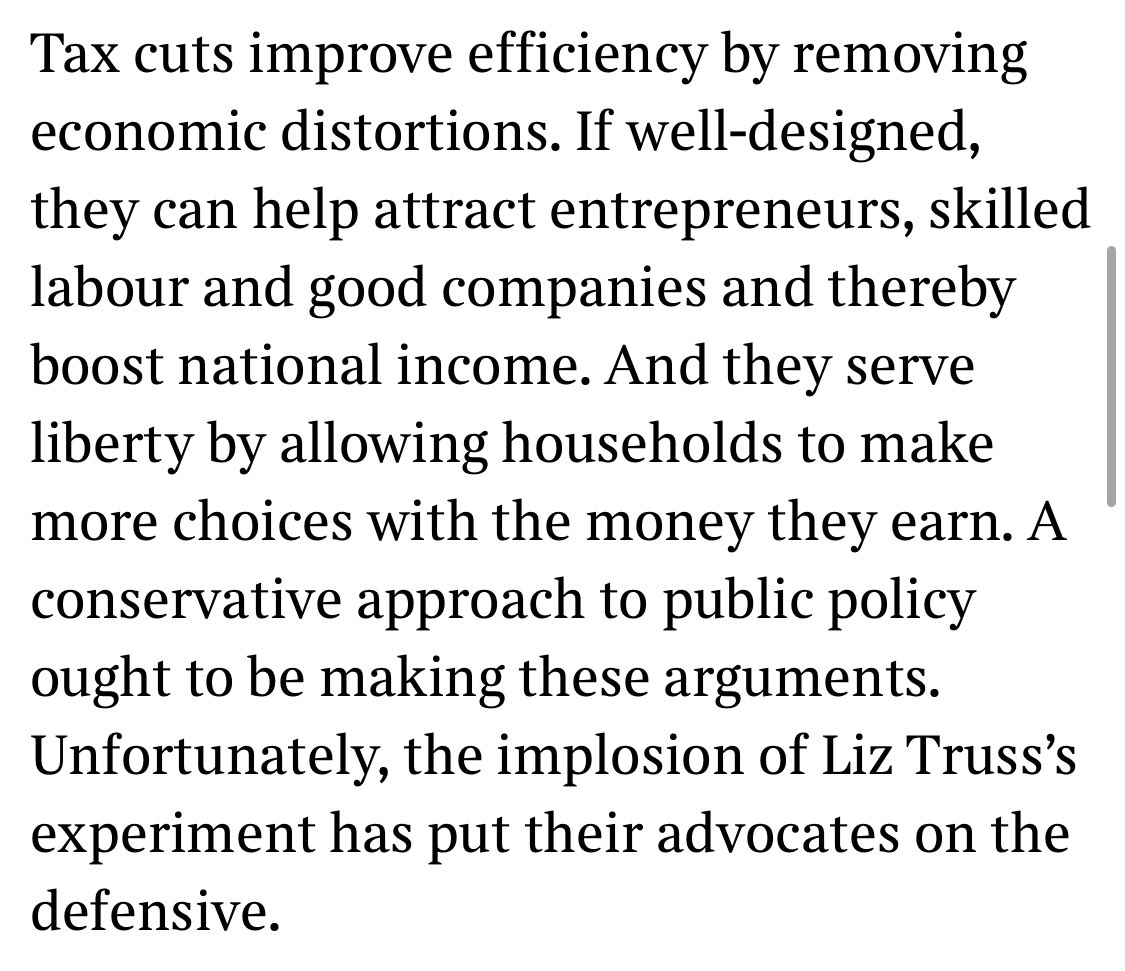
Economist. Associate @ResFoundation, chair @genrentuk and help out at @econ_SPE. Previously UK policy chief @InstituteGC, @OxfordEconomics @HMTreasury
How to get URL link on X (Twitter) App




 Today's immigration numbers were well above the ones in the ONS population projections, so that's caused pop per dwelling to rise in 2022-23 (blue line), but not by much.
Today's immigration numbers were well above the ones in the ONS population projections, so that's caused pop per dwelling to rise in 2022-23 (blue line), but not by much.



https://twitter.com/hzeffman/status/1704179144727150607
 High and converging levels of concern about the problem across social classes, age groups and urban/rural.
High and converging levels of concern about the problem across social classes, age groups and urban/rural. 
 Four drivers of changes in assets/liabilities are worth thinking about:
Four drivers of changes in assets/liabilities are worth thinking about:


 It's just one quarter's data of course so should treat with caution, but it's currently looking like we should see the 'great retirement' as a blip rather than a structural shift.
It's just one quarter's data of course so should treat with caution, but it's currently looking like we should see the 'great retirement' as a blip rather than a structural shift.



 The erosion of 3 big forms of subsidy for renters have revolutionised renting over the past 45 years.
The erosion of 3 big forms of subsidy for renters have revolutionised renting over the past 45 years. 

 This assertion that ‘government takes up national wealth’ is wrong and economically harmful. How should we think about it?
This assertion that ‘government takes up national wealth’ is wrong and economically harmful. How should we think about it?


https://twitter.com/TorstenBell/status/1562797671785541632What happens when we get to April? At a 5k cap the Lib/Lab option is a 60% bill cut vs RF’s 30%. The former expensive but the latter insufficient in that scenario imo

 @bankofengland's new research suggests the 'underlying' real interest rate (R*) has fallen ~2ppts since the mid-80s, from ~2% to ~0%
@bankofengland's new research suggests the 'underlying' real interest rate (R*) has fallen ~2ppts since the mid-80s, from ~2% to ~0%



 If they were, those lines would be sloping downwards. But they're worryingly flat, suggesting that people affected aren't recovering very fast if at all
If they were, those lines would be sloping downwards. But they're worryingly flat, suggesting that people affected aren't recovering very fast if at all


 Taking everything into account, lowest income decile is now facing a 4% income squeeze for 2022-3 compared to the year before. More like 2.5% for the better off. These are big numbers.
Taking everything into account, lowest income decile is now facing a 4% income squeeze for 2022-3 compared to the year before. More like 2.5% for the better off. These are big numbers. 



 We know that some areas have been hit much harder by past waves of Covid than others. But the silver lining is that population protection in those areas is higher now so any third wave *should* be smaller in areas of high past infection
We know that some areas have been hit much harder by past waves of Covid than others. But the silver lining is that population protection in those areas is higher now so any third wave *should* be smaller in areas of high past infection